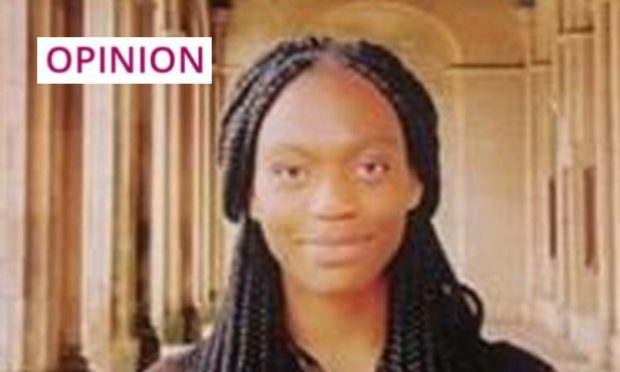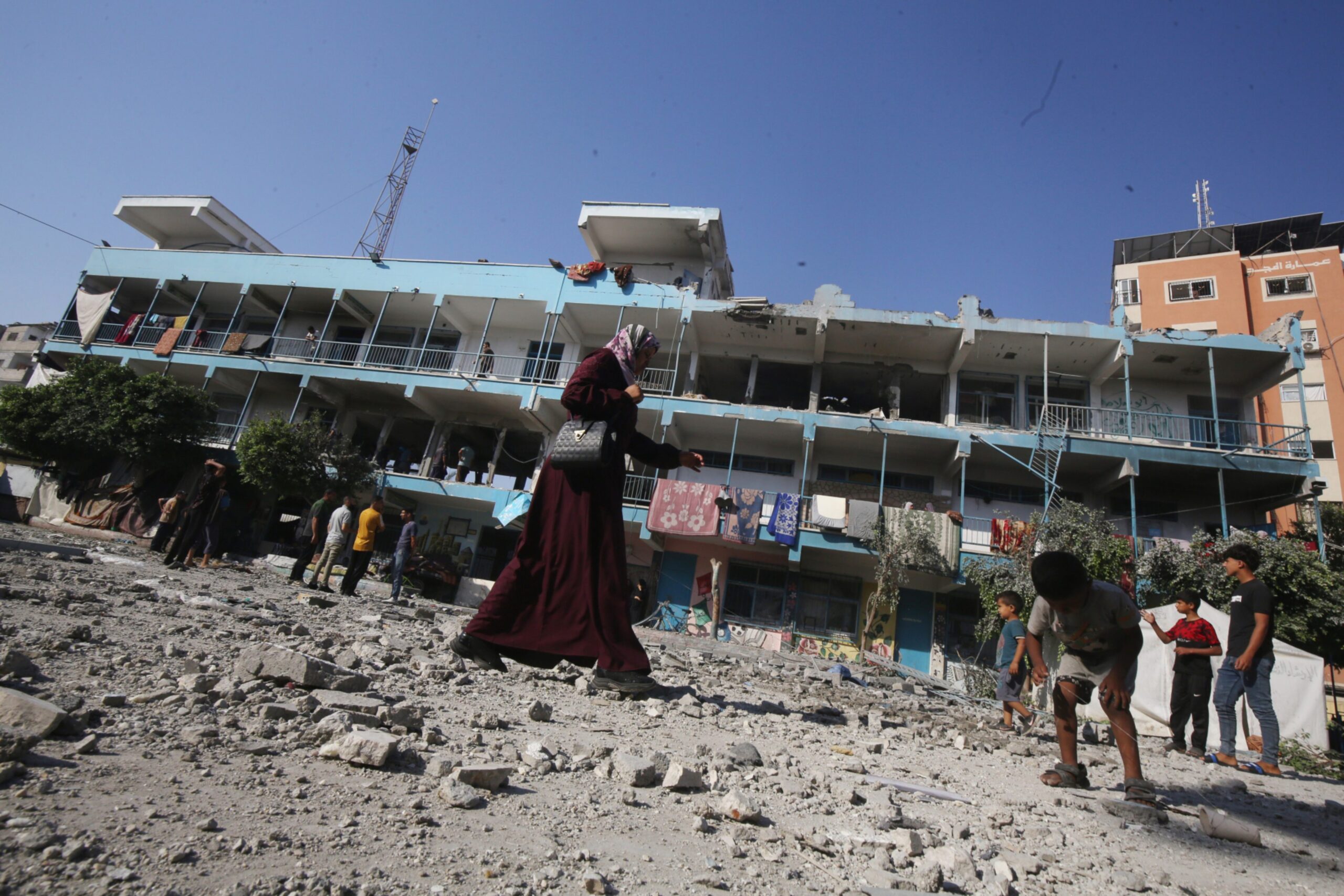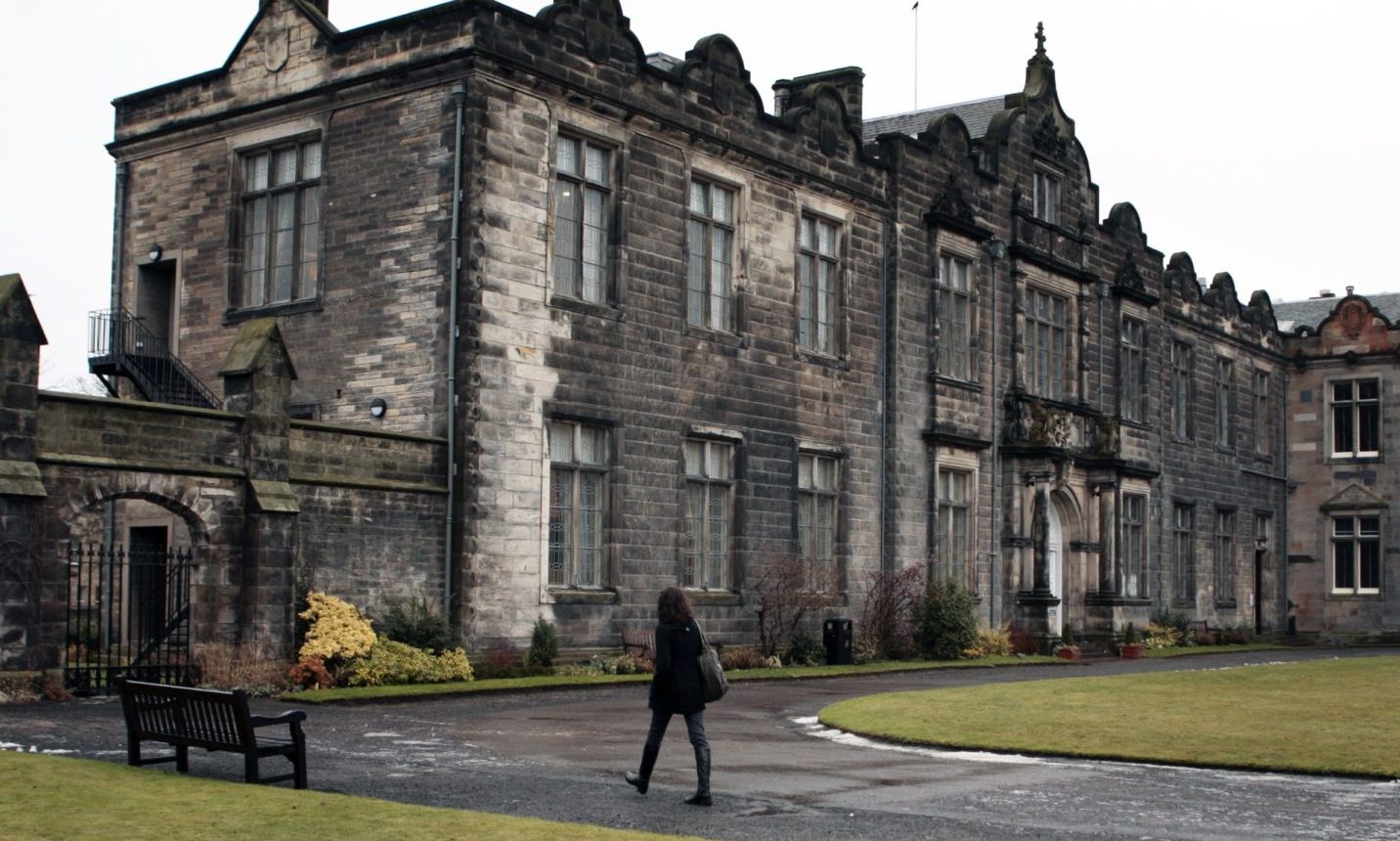Genocide. The very word is like verbal barbed wire.
You use it in public at your peril.
Context is crucial – the occasion, the setting, the nature of your audience, the manner of the delivery.
Is it a thoughtful choice or thoughtless, or is it calculated to shock?
And who are you anyway that you should choose such a word?
Stella Maris, rector of St Andrews University, chose to use it – thoughtfully it seems to me – in an address to students.
And now the university court’s reaction has caused at least an equivalent volume of shockwaves.
The King’s Counsel summoned by the court to conduct an inquiry said Ms Maris’s words could encourage anti-Semitic behaviour and make students fear for their safety.
‘I considered the word genocide’
Genocide. The word is explosive.
Words fascinate me. They are the raw material of my life’s work.
In a few thousand newspaper and magazine articles and forty-something books, not to mention wrestling with more cryptic crosswords than can possibly be good for a person, my fascination only deepens.
In that context, I considered the word genocide.
I started with the definition. Dictionaries were not what I was looking for here.
The United Nations was what I needed, specifically Article II of its Genocide Convention, in which it describes genocide as “a crime committed with the intent to destroy a national, ethnic, racial or religious group, in whole or in part”.
There is also intriguing information about the origins of the word. It was coined by a Polish – and Jewish – lawyer, Raphael Lemkin, in 1944, in his book “Axis Rule in Occupied Europe”.
It derives from a Greek prefix, “genos” meaning race or tribe, and the Latin suffix “cide” meaning killing.
According to the United Nations, Lemkin developed the term “partly in response to Nazi policies of systematic murder of Jewish people during the Holocaust”.
He would go on to lead the campaign to have genocide recognised as an international crime.
That happened in December 1948 when the Genocide Convention was the first human rights treaty adopted by the General Assembly of the United Nations.
It signified the international community’s commitment to “never again”, after the atrocities of World War II.
‘University court has overreached’
Meanwhile, back in St Andrews, I struggle to understand the nature of the university court’s reaction to Ms Maris’s address.
She called for an end to genocide in Palestine.
When she stood by her words, declined to bow down to institutional pressure, declined to resign, the university court seems to me to have overreached.
Hiring a KC to lead its case before an inquiry strikes me as being contrary to the ethos that underpins a university education, the ethos that encourages free-thinking and independence of spirit in the context of pursuing the possibilities of that specific educational realm.
Correct me if I’m wrong.
I never went to university. I left school at 16 with Highers in English and French and started training to be a journalist with this newspaper.
Since then, my education has been self-taught, and that continues into my seventies.
I have no academic qualifications of any kind and only a vague notion of how a university operates.
But I made friends among a few lecturers or professors, and as one who has known St Andrews all my life and learned long ago to cherish the university’s standing all over the world, it matters when it looks to me as if it is making a fool of itself.
‘What is happening in Palestine chimes with UN definition of genocide’
Choosing a rector for such an institution is, I acknowledge, an imperfect art, but having chosen, it seems from this distance that in addition to the rector’s role and responsibility, there is the question of the university’s responsibility towards the rector.
Sometimes, again from this distance, it seems that an institutional insularity governs aspects of the way a great university conducts itself.
Yet Scotland outwith the university walls is not indifferent.
I and countless others like me think what is happening in Palestine right now chimes with the UN definition of genocide in every conceivable way and that Ms Maris is acting within the spirit of her role to say so.
I believe the court of public opinion thinks so too.
If you think the court of public opinion is immaterial in this case, then you might care to consider the following words:
“Mighty are the Universities of Scotland, and they will prevail. But even in your highest exultations never forget that they are not four but five.
“The greatest of them, is the poor proud homes you come out of, which said so long ago: ‘There shall be education in this land.’ She, not St Andrews, is the oldest University of Scotland, and all the others are her whelps.”
The words were heard in 1922, during an address to St Andrews University by its rector, JM Barrie.














Conversation